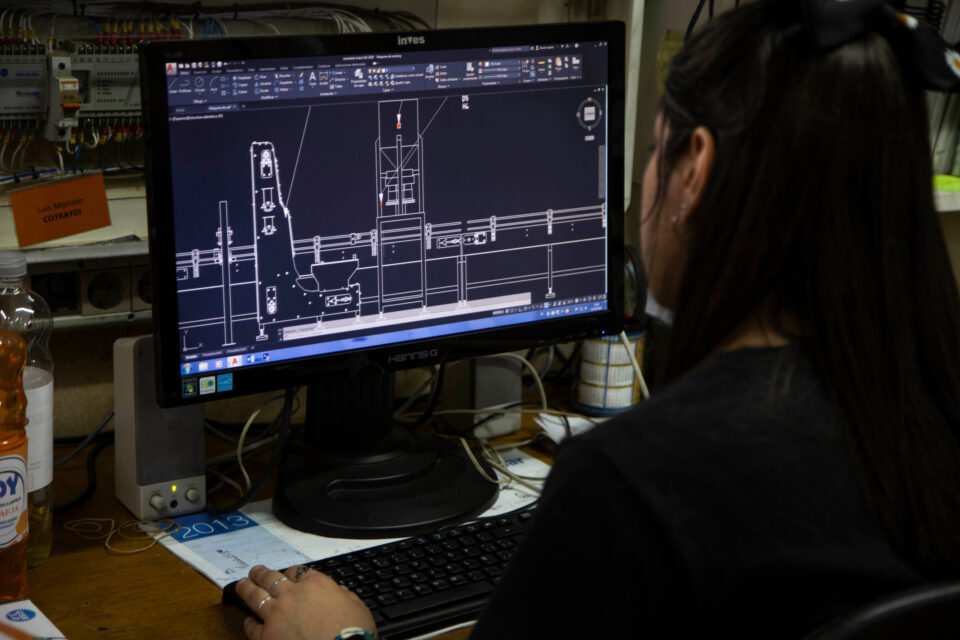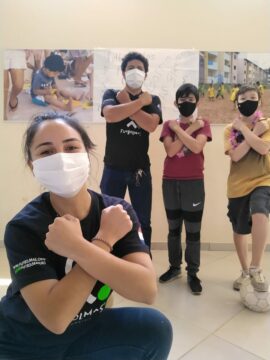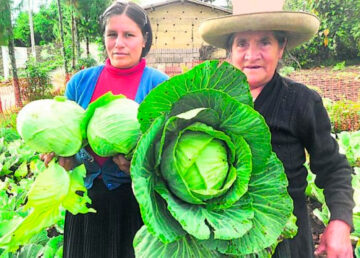Digital design and manufacturing for social development

Uruguay and Paraguay turn to digital design and manufacturing as instruments with the potential to improve people’s lives.
This bidirectional South-South Cooperation project between Uruguay and Paraguay in digital design and manufacturing was implemented between 2020 and 2022. It is an example of how restrictions imposed by COVID-19 could successfully be overcome through joint work, by adapting originally planned activities to the pandemic context. The initiative aimed to promote quality education with equity by strengthening human and local capacities of educational institutions in vulnerable communities in Paraguay and Uruguay, through technology and innovation (CIDI-FADA, 2019).
Digital manufacturing is a revolutionary technology that involves the use of an integrated, computer-aided system to create products. It enables flexible production at lower costs and in reduced periods of time (Universidad Continental, 2022).
The project was carried out by two Universities: Universidad del Trabajo del Uruguay (UTU) and the School of Architecture, Design and Arts (FADA by its Spanish acronym) of Universidad Nacional de Asunción (UNA). Both these institutions count with FabLabs. FabLabs (digital manufacturing laboratories) are places to play, create, learn, meet and share knowledge. They provide access to state-of-the-art environment, capacities, materials and technologies to enable anyone, anywhere, to do (almost) anything (Fab Foundation, 2022). FabLabs are small-scale manufacturing workshops but, above all, they are learning and innovation platforms.
Paraguay’s FabLab works since 2013 in UNA’s Center for Research, Development and Innovation (CIDI by its Spanish acronym) (UTU, 2021a). It was conceived to be an open multidisciplinary space, “where people can access digital manufacturing tools that help the development of research and innovation projects and their prototyping” (CIDI-FADA, 2022).
Uruguay, in turn, has a digital FabLab in the Industrial Technology Center (Polo Tecnológico Industrial – PTI by its Spanish acronym) in Montevideo, which was launched in 2018 and is co-managed by different institutions of the Sectoral Design Council, in which UTU takes part. One of the lab’s objectives is to put technology at the service of development and productivity in order to democratize it and improve quality of life (MIEM, 2020). It currently counts with more than 450 students (UTU, 2021b).
As part of the project, a course in digital design and manufacturing was held in 2021 for 42 teachers of different levels and regions of both countries (UTU, 2021a). This course was an example of distributed learning: it lasted 10 weeks, had both online and face-to-face activities, and was carried out in both countries’ digital FabLabs (CIDI-FADA, 2021).
The training program aimed to promote a creative approach to problem solving, applying the stages of project cycle thinking to learning processes: know and explore, problematize, create and test. Throughout the course, teachers understood that “creativity is a way of inherently reacting to our contexts’ shortages in order to overcome them” (UTU, 2021c). The course’s final project required putting knowledge into practice by participating in a proposal for teachers to implement with their own groups of students. This resulted in the dissemination of this approach to the educational community.
This was only one of the project’s multiple activities which, among others, included the design of a joint premise between UTU and FADA that involved 7 teachers and 17 students in both countries, and the organization of an International Forum called “Digital design and manufacturing for local development”.
The academic mobility of UTU and FADA teachers has contributed to the development of their training and research capacities and has paved the way for future partnerships to promote equal access to technology education through design (UTU and FADA, 2022).
This project was part of the 2019-2021 Bilateral Program between Uruguay and Paraguay and was financed by the Uruguayan Agency for International Cooperation (AUCI by its Spanish acronym) and FADA.
May 2022
*
Source: SEGIB based on CIDI-FADA (2019, 2021 & 2022), Universidad Continental (2022), Fab Foundation (2022), Universidad del Trabajo del Uruguay (UTU 2021 a, b & c), Ministry of Industry, Energy and Mining of Uruguay (MIEM 2020) and the project’s final report (UTU and FADA, 2022).
Photograph: Design student at the technical school in Cerro, one of Montevideo’s neighborhoods. Bilateral SSC project between Uruguay and Paraguay “Digital design and manufacturing for the territorial development of vulnerable populations”. Image Bank on South-South and Triangular Cooperation in Ibero-America. SEGIB-PIFCSS. 2021.


